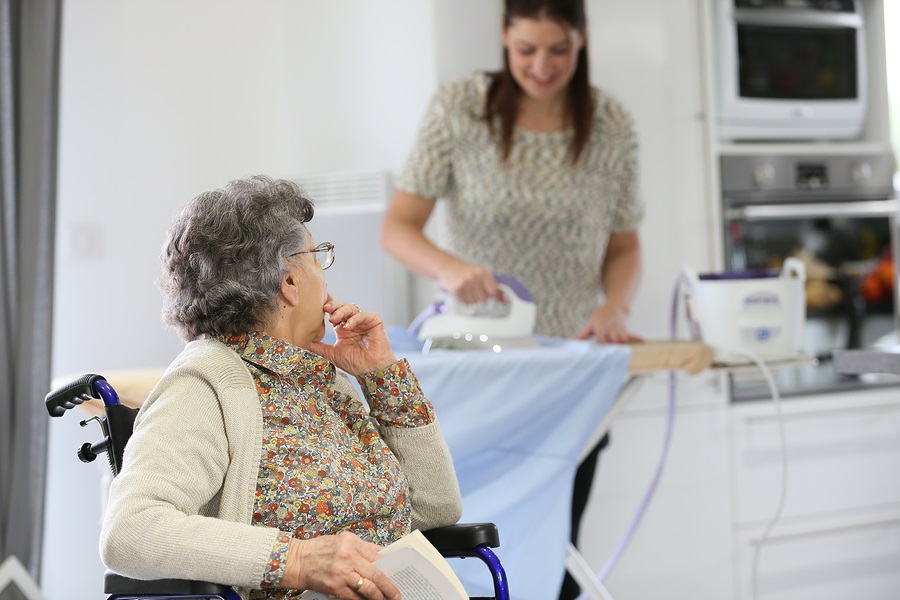In an era where technology is rapidly evolving, ensuring the safety of our loved ones, particularly the elderly, becomes a paramount concern. Among the myriad of technologies available, smartphones and dedicated fall detection devices stand out as pivotal tools for safeguarding individuals prone to falls. This article delves into the advantages and limitations of both technologies, helping family caregivers make informed decisions.

Introduction to Fall Detection Technology
Fall detection technologies are designed to ensure timely assistance to individuals who experience a fall. With the increasing elderly population, these technologies have become essential in preventing serious injuries and providing peace of mind to families.
Understanding Smartphones as Fall Detection Tools
Smartphones have revolutionized personal safety with features like accelerometers and gyroscopes. These features can detect sudden movements indicative of a fall. Many apps capitalize on this technology to provide fall detection services.
Advantages of Smartphones
Smartphones offer several advantages as fall detection devices. They are multi-functional, providing communication, navigation, and entertainment, in addition to safety features. Their ubiquity means that users often carry them, ensuring constant protection.
Limitations of Smartphones
Despite their advantages, smartphones have limitations. They require regular charging, and their accuracy in detecting falls can vary. Furthermore, not all users, especially the elderly, are comfortable using smartphones.
Dedicated Fall Detection Devices: A Closer Look
Dedicated fall detection devices are specifically designed for safety, focusing solely on detecting falls and alerting emergency contacts. These devices are often worn as pendants or bracelets, ensuring constant monitoring.
Advantages of Dedicated Devices
These devices offer reliability and accuracy, with many equipped with GPS features for location tracking. They often have longer battery lives compared to smartphones and are designed to be user-friendly for the elderly.
Limitations of Dedicated Devices
While effective, dedicated devices can be limited by their singular functionality. They often lack the multi-purpose nature of smartphones and may require separate devices for communication.
Comparing Costs and Accessibility
Cost is a significant factor for many when choosing between smartphones and dedicated fall detection devices. Smartphones, while expensive, offer multiple functionalities, potentially justifying their cost. Dedicated devices, however, might have a lower initial cost but could incur monthly service fees.
Ensuring User Comfort and Compatibility
For any fall detection technology to be effective, it must be comfortable and compatible with the user’s lifestyle. Smartphones may be preferred by tech-savvy individuals, while dedicated devices might be more suitable for those less familiar with technology.
The Role of Family Caregivers
Family caregivers play a crucial role in selecting and managing fall detection devices. Understanding the needs and preferences of their loved ones ensures optimal protection and peace of mind.
The Importance of Fall Prevention
Beyond detection, fall prevention is equally important. Caregivers should ensure homes are safe, with minimal fall hazards, and encourage regular exercise to maintain strength and balance.
Real-Life Testimonials
Many families have shared positive experiences with both smartphones and dedicated devices, highlighting improved safety and confidence. These testimonials often emphasize the importance of choosing the right device for individual needs.
Emerging Technologies in Fall Detection
As technology advances, new fall detection solutions are emerging. Innovations like AI-driven devices and wearable tech promise even greater accuracy and reliability. Staying informed about these developments can help caregivers make the best choices.
Conclusion: Making an Informed Choice
The choice between smartphones and dedicated fall detection devices depends on individual needs and preferences. Both offer unique advantages and limitations, and the right choice can significantly impact the safety and well-being of the user.
Additional Resources
For more information on fall prevention and safety devices, you can visit the National Council on Aging. Additionally, explore our detailed articles on smart elderly care solutions and fall detection technology reliability to learn more about ensuring safety and independence.

FAQs
Are smartphones reliable for fall detection?
Smartphones can be reliable if equipped with the right apps, but their accuracy can vary. It’s essential to choose reputable apps and regularly update the device.
What is the main benefit of dedicated devices?
Dedicated devices offer accuracy and reliability, specifically designed to detect falls and alert caregivers without the need for additional functions.
Can these devices be used together?
Yes, combining smartphones with dedicated fall detection devices can provide comprehensive safety coverage, ensuring maximum protection and peace of mind.
This article contains affiliate links. We may earn a commission at no extra cost to you.






